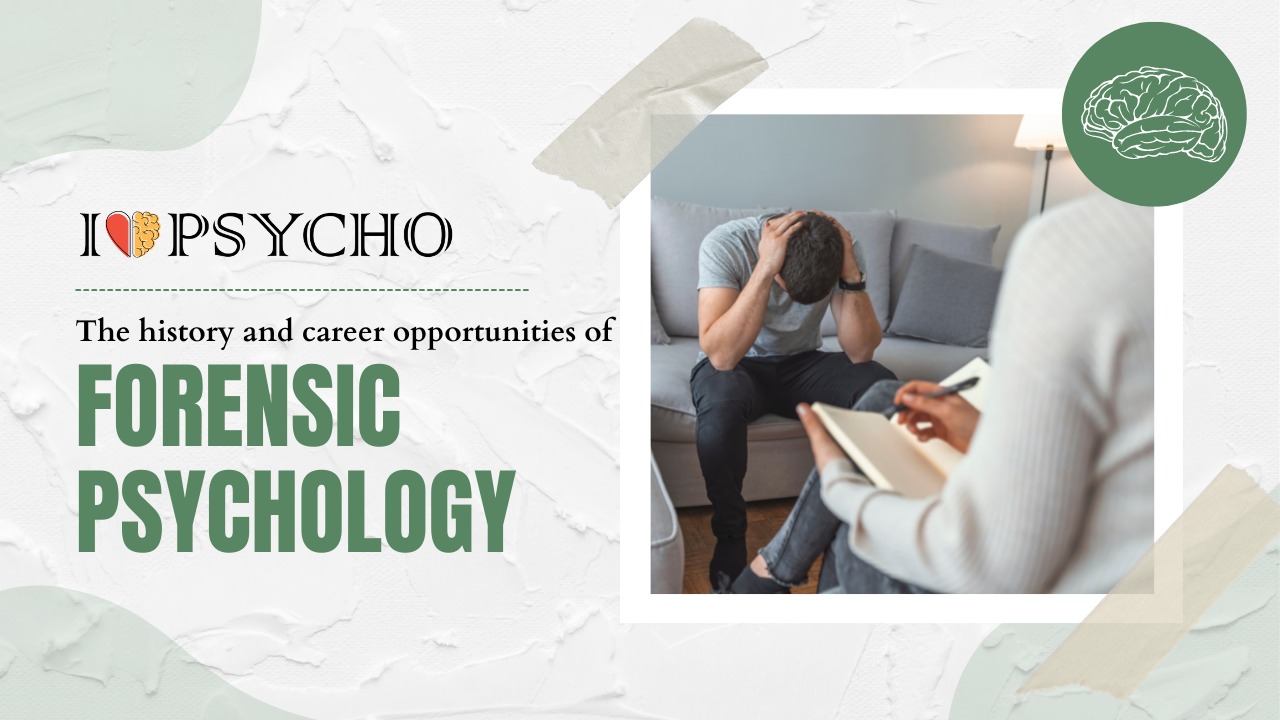While this may sound simple or narrow, forensic psychology is a broad and often complicated field. Psychologists study human behavior using the scientific method of induction, whereas lawyers’ study legal issues using the deductive method of inquiry.
Forensic psychology is an area combining psychological practice and law. Those working in this field use psychological know-how for the justice system. The word ‘forensic,’ which means the forum, or the courts system of Ancient Rome, originates from the Latin word ‘forensis.’
In recent years, there has been a surge in interest in forensic psychology. A growing number of graduate programs offer dual degrees in psychology and law, as well as forensic psychology specialization. Some psychologists have a forensic psychology specialist degree, but the majority are licensed psychologists with a Ph.D. or Psy.D.
These psychologists can practice in both criminal and civil law. What distinguishes forensic psychology from other fields of psychology, such as clinical psychology? In most cases, a forensic psychologist’s responsibilities are limited in scope and duration.
In each case, a forensic psychologist is asked to perform a very specific task, such as determining whether or not a suspect is mentally competent to face charges. A forensic psychologist usually works with clients who are not there of their own free will, unlike in a typical clinical setting where a client has voluntarily sought assistance or evaluation.
Because some clients wilfully resist attempts at help, this can make assessment, diagnosis, and treatment much more difficult. If you like to learn about human behavior and law science, you will probably be quite interested in forensic psychology.
In recent years, the field has seen dramatic growth as students become more and more interested in this applied psychology branch. However, forensic psychology goes far beyond the glitzy views depicted in TV shows, films and books. The intersection of psychology and law is defined as forensic psychology, but forensic psychologists can play a number of roles, so that it can vary.
Forensic psychologists in many cases aren’t “forensic psychologists.” They may be clinical psychologists, psychologists of colleges, neurologists or counsellors who provide testimonials, analysis or recommendations in legal or criminal cases with their emotional expertise.
History of Forensic Psychology
Despite the fact that forensic psychology is a relatively new specialty area within psychology, it has roots in the field’s history. Philosophers and scientists have long tried to figure out why people commit crimes, act aggressively, or engage in antisocial behavior. The field of forensic psychology is a new one. In fact, the American Psychological Association only recently recognized forensic psychology as a separate specialty area in 2001.
Despite this, forensic psychology has its roots in Wilhelm Wundt’s first psychology lab in Leipzig, Germany. Forensic psychologists are now interested in not only understanding why such behaviors occur, but also in assisting in the reduction and prevention of such behavior.

As more students become interested in this applied branch of psychology, the field has experienced dramatic growth in recent years. Popular films, television shows, and books have helped to popularize the field by portraying brilliant heroes who use psychology to solve violent crimes or track down killers.
While popular media portrayals of forensic psychology are certainly dramatic and attention-getting, they are not always accurate. In the criminal justice system, however, forensic psychologists play an important role. For students interested in applying psychological principles to the legal system, it can be an exciting career.
Careers in Forensic Psychology
Despite the fact that forensic psychology isn’t solely concerned with solving crimes and penetrating criminal minds, forensic psychologists face a variety of challenges. Within the field of forensic psychology, there are a variety of job opportunities. Some forensic psychologists, for example, work directly in the criminal justice system, assessing, evaluating, and treating people who have committed or been victims of crimes.

Other forensic psychologists look into allegations of child abuse, work with child witnesses, assess mental competency, and evaluate people involved in child custody disputes. A career in forensic psychology can be both exciting and challenging.
If you want to pursue a career in this field, you’ll need to be able to communicate effectively, research problems, and think critically.
What Does a Forensic Psychologist Do?
Forensic psychologists work in the field of criminal investigation, applying psychological principles. In criminal trials, forensic psychology is used to see if the defendant’s mental state meets the legal requirements.

When psychologists become involved in criminal cases on a professional level, they play the following roles:
Assessments and Evaluation
Forensic psychologists conduct evaluations and assessments to determine a person’s psychological state for legal purposes. Evaluations are conducted to gather information for criminal court proceedings, sentencing criminals or parole hearings, family courts or civil courts, and forensic psychologists are responsible for assessing and reporting the evaluation’s findings, with other legal professionals making any decisions based on these reports.

It is the evaluator’s responsibility to inform the person being evaluated that everything said during the evaluation will be scrutinized in a forensic report or expert testimony. When called by the court to testify about the results of their evaluations, forensic psychologists also serve as expert witnesses.
Treatment
Implementing measures and treating psychological problems that help in reducing problems and preventing crime are included in forensic psychological treatment. Treatment providers are required to provide psychological interventions to those who require or request them in both criminal and civil cases.

In criminal cases, forensic psychologists can help victims of drug or alcohol abuse, mental illness, or anger issues, as well as those who have previously committed a crime and been sentenced for it but are committing the same crime again and again.
Forensic psychologists, on the other hand, work with families going through divorce or custody battles in civil cases, and they can also help people who have suffered psychological injuries as a result of trauma.
Forensic Psychology Consultations

By applying psychological expertise and research, forensic psychologists assist attorneys and other legal professionals in better understanding the human behavior of criminals, witnesses, victims, jurors, and other legal professionals.
Academics
Academic forensic psychologists teach, train, and conduct research on foreign psychology, criminal psychology, the courtroom, investigation, assessment, and treatment of offenders, as well as how to conduct criminal psychological research.

However, academic foreign psychologists’ main role is to conduct research in their field of interest, not just to teach. Every academic foreign psychologist has a research interest in which they conduct research and gain specialized knowledge.
Further Reading:









